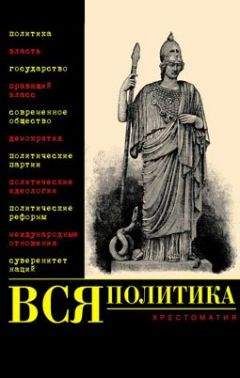Some of these persons contain the cause within themselves,
others were subjected to psychologically abnormal people as
children. Such individuals’ comprehension of social and moral
questions is different, both from the natural and from the objec-
tive viewpoint; they constitute a destructive factor for the de-
velopment of society’s psychological concepts, social structure,
and internal bonds.
At the same time, such people easily interpenetrate the so-
cial structure with a ramified22 network of mutual pathological
conspiracies poorly connected to the main social structure.
These people and their networks participate in the genesis of
that evil which spares no nation. This substructure gives birth
to dreams of obtaining power and imposing one’s will upon
society, and is quite often actually brought about in various
countries, and during historical times as well. It is for this rea-
son that a significant portion of our consideration shall be de-
voted to an understanding of this age-old and dangerous source
of problems.
Some countries with a non-homogeneous population mani-
fest further factors which operate destructively upon the forma-
tion of social structure and the permanent developmental proc-
22 Showing one or more branches. In mathematics, ramification is a geomet-
ric term used for “branching out”. It is also used from the opposite perspec-
tive (branches coming together). [Editor’s note.]
POLITICAL PONEROLOGY
79
esses of a society’s psychological world view. Primarily among
these are the racial, ethnic, and cultural differences existing in
virtually every conquest-engendered nation. Memories of for-
mer sufferings and contempt for the vanquished continue to
divide the population for centuries. It is possible to overcome
these difficulties if understanding and goodwill prevail
throughout several generations.
Differences in religious beliefs and the moral convictions
related thereto continue to cause problems, albeit less danger-
ous than the above, unless aggravated by some doctrine of
intolerance or superiority of one faith above others. The crea-
tion of a social structure whose links are patriotic and supra-
religious has, after all, been demonstrated as possible.
All these difficulties become extremely destructive if a so-
cial or religious group, in keeping with its doctrine, demands
that its members be accorded positions which are in fact up-
ward-adjusted with relation to these people’s true talents.
A just social structure woven of individually adjusted per-
sons, i.e. creative and dynamic as a whole, can only take shape
if this process is subjected to its natural laws rather than some
conceptual doctrines. It benefits society as a whole for each
individual to be able to find his own way to self-realization
with assistance from a society which understands these laws,
individual interests and the common good.
One obstacle to the development of a society’s psychologi-
cal world view, the building of a healthy societal structure, and
the institution of proper forms for governing the nation, would
appear to be the enormous populations and vast distances of
giant countries. It is just precisely these nations which give rise
to the greatest ethnic and cultural variations. In a vast spreading
land containing hundreds of millions of people, individuals
lack the support of a familiar homeland and feel powerless to
exert an effect upon matters of high politics. The structure of
society becomes lost in wide-open spaces. What remains is
narrow, generally familial, links.
At the same time, governing such a country creates its own
unavoidable problems: giants suffer from what could be called
permanent macropathy (giant sickness), since the principal
authorities are far away from any individual or local matters.
80
SOME INDESPENSIBLE CONCEPTS
The main symptom is the proliferation of regulations required
for administration; they may appear proper in the capital but
are often meaningless in outlying districts or when applied to
individual matters. Officials are forced to follow regulations
blindly; the scope of using their human reason and differentiat-
ing real situations becomes very narrow indeed. Such behav-
ioral procedures have an impact upon the society, which also
starts to think regulations instead of practical and psychological
reality. The psychological world view, which constitutes the
basic factor in cultural development and activates social life,
thus becomes involuted.
It thus behooves us to ask: Is good government possible?
Are giant countries capable of sustaining social and cultural
evolution? It would appear, rather, that the best candidates for
development are those countries whose populations number
between ten and twenty million, and where personal bonds
among citizens, and between citizens and their authorities, still
safeguard correct psychological differentiation and natural
relationships. Overly large countries should be divided into
smaller organisms enjoying considerable autonomy, especially
as regards cultural and economic matters; they could afford
their citizens a feeling of homeland within which their person-
alities could develop and mature.
If someone asked me what should be done to heal the
United States of America, a country which manifests symptoms
of macropathy, inter alia, I would advise subdividing that vast
nation into thirteen states--just like the original ones, except
correspondingly larger and with more natural boundaries. Such
states should then be given considerable autonomy. That would
afford citizens a feeling of homeland, albeit a smaller one, and
liberate the motivations of local patriotism and rivalry among
such states. This would, in turn, facilitate solutions to other
problems with a different origin.
~~~
Society is not an organism subordinating every cell to the
good of the whole; neither is it a colony of insects, where the
collective instinct acts like a dictator. However, it should also
avoid being a compendium of egocentric individuals linked
POLITICAL PONEROLOGY
81
purely by economic interests and legal and formal organiza-
tions.
Any society is a socio-psychological structure woven of in-
dividuals whose psychological organization is the highest, and
thus the most variegated. A significant scope of man’s individ-
ual freedom derives from this state of affairs and subsists in an
extremely complicated relationship to his manifold psychologi-
cal dependencies and duties, with regard to this collective
whole.
Isolating an individual’s personal interest as if it were at war
with collective interests is pure speculation which radically
oversimplifies real conditions instead of tracking their complex
nature. Asking questions based on such schemes is logically
defective, since it contains erroneous suggestions.
In reality, many ostensibly contradictory interests, such as
individual vs. collective or those of various social groups and
substructures, could be reconciled if we could be guided by a
sufficiently penetrating understanding of the good of man and
society, and if we could overcome the operations of emotions
as well as some more or less primitive doctrines. Such recon-
ciliation, however, requires transferring the human and social
problems in question to a higher level of understanding and
acceptance of the natural laws of life. At this level, even the
most difficult problems turn out to have a solution, since they
invariably derive from the same insidious operations of psy-
chopathological phenomena. We shall deal with this question
toward the end of this book.
A colony of insects, no matter how well-organized socially,
is doomed to extinction whenever its collective instinct contin-
ues to operate according to the psychogenetic code, although
the biological meaning has disappeared. If, for instance, a
queen bee does not affect her nuptial flight in time because the
weather has been particularly bad, she begins laying unfertil-
ized eggs which will hatch nothing but drones. The bees con-
tinue to defend their queen, as required by their instinct; of
course, and when the worker bees die out the hive becomes
extinct.
At that point, only a “higher authority” in the shape of a
beekeeper can save such a hive. He must find and destroy the
82
SOME INDESPENSIBLE CONCEPTS
drone queen and insinuate a healthy fertilized queen into the
hive along with a few of her young workers. A net is required
for a few days to protect such a queen and her providers from
being stung by those bees loyal to the old queen. Then the hive
instinct accepts the new one. The apiarist generally suffers a
few painful stings in the process.
The following question derives from the above comparison:
Can the human hive inhabiting our globe achieve sufficient
comprehension of macrosocial pathological phenomenon
which is so dangerous, abhorrent, and fascinating at the same
time, before it is too late? At present, our individual and collec-
tive instincts and our natural psychological and moral world
view cannot furnish all the answers upon which to base skillful
counteractive measures.
Those fair-minded people who preach that all we have left
is to trust in the “Great Apiarist in the sky” and a return to His
commandments are glimpsing a general truth, but they also
tend to trivialize particular truths, especially the naturalistic
ones. It is the latter which constitute a basis for comprehending
phenomena and targeting practical action. The laws of nature
have made us very different from one another. Thanks to his
individual characteristics, exceptional life-circumstances, and
scientific effort, man may have achieved some mastery of the
art of objectively comprehending the phenomena of the above-
mentioned type, but we must underscore that this could only
occur because it was in accordance with the laws of nature.
If societies and their wise people are able to accept an ob-
jective understanding of social and sociopathological phenom-
ena, overcoming the emotionalism and egotism of the natural
world view for this purpose, they shall find a means of action
based on an understanding of the essence of the phenomena. It
will then become evident that a proper vaccine or treatment can
be found for each of the diseases scourging the earth in the
form of major or minor social epidemics.
Just as a sailor possessing an accurate nautical map enjoys
greater freedom of course-selection and maneuvering amid
islands and bays, a person endowed with a better comprehen-
sion of self, other people, and the complex interdependencies
of social life becomes more independent of the various circum-
POLITICAL PONEROLOGY
83
stances of life and better able to overcome situations which are
difficult to understand. At the same time, such improved
knowledge makes an individual more liable to accept his duties
toward society and to subordinate himself to the discipline
which arises as a corollary. Better informed societies also
achieve internal order and criteria for collective efforts. This
book is dedicated to reinforcing this knowledge by means of a
naturalistic understanding of phenomena, something heretofore
comprehended only by means of excessively moralistic catego-
ries of the natural world view.
In a wider perspective, a constantly improving grasp of the
laws governing social life, and its atypical secluded recesses,
must lead us to reflect upon the failings and deficiencies of
those social doctrines expounded to date, which were based on
an extremely primitive understanding of these laws and phe-
nomena. The distance is not far between such considerations
and a better understanding of the operations of these dependen-
cies in former and existing social systems; the same applies to
substantive critiques thereof. A new idea is about to be born
based upon this ever-deepening comprehension of natural laws,
namely the building of a new social system for nations.
Such a system would be better than any of its predecessors.
Building it is possible and necessary, not just some vague fu-
turistic vision. After all, a whole series of countries is now
dominated by conditions which have destroyed the structural
forms worked out by history and replaced them with social
systems inimical to creative functioning, systems which can
only survive by means of force. We are thus confronted with a
great construction project demanding wide-ranging and well-
organized work. The earlier we undertake the job, the more
time we will have to carry it out.
CHAPTER III
THE HYSTEROIDAL CYCLE
Ever since human societies and civilizations have been cre-
ated on our globe, people have longed for happy times full of
tranquility and justice, which would have allowed everyone to
herd his sheep in peace, search for fertile valleys, plow the
earth, dig for treasures, or build houses and palaces. Man de-
sires peace so as to enjoy the benefits accumulated by earlier
generations and to proudly observe the growth of future ones
he has begotten. Sipping wine or mead in the meantime would
be nice. He would like to wander about, becoming familiar
with other lands and people, or enjoy the star-studded sky of




